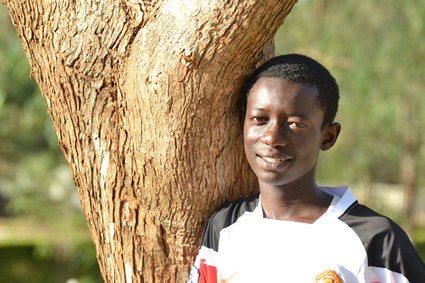
Millions of children around the world are orphans. In fact, 53 million children are orphaned in Africa alone. But what is an orphan? And how can we support these children? Here, you’ll learn the meaning of the word “orphan” and how to help those in need of love and care as you journey through one boy’s true story.
What’s Here:
- Orphan Definition
- No Longer an Orphan: Nelson’s Inspiring Story
- How to Help Orphaned Children Like Nelson
Orphan Definition
Many of us think that an orphan is a child who has lost both of their parents. While that’s true, orphanhood is complex and takes many forms. For example, UNICEF defines “orphan” as a child under 18 years of age who has lost one or both parents to any cause of death.
“Orphan” can also mean a child whose parents have abandoned them or are unable to care for them. This is common for children living in poverty.
Nelson, a young man living in Africa, faced orphanhood in multiple forms, from “total orphan” to “head-of-household orphan.” His story can help us understand that being an orphan in any form simply means lacking parental love, care and protection.
No Longer an Orphan: Nelson’s Story
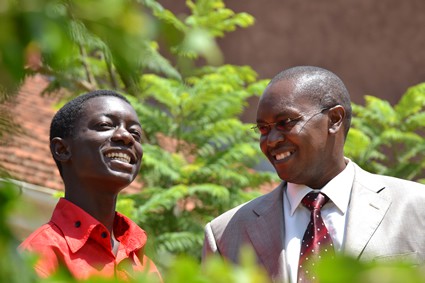
Nelson is a former Compassion program participant. As a child, Nelson grew up with both a mother and a father who cared for him and his four siblings. It was a picture-perfect family until life took a sharp turn for the worse.
“My father was attacked by thugs. He was shot and killed on his way from work.”
After the death of his father, Nelson was categorized as a single orphan, or a child who has lost one parent and has a surviving parent. The loss left his family devastated.
Nelson Suffers Another Loss
Nelson recalls the early days after his father died:
“We grieved our father, but my mom was shattered, and she could not come to terms with it. She slid into depression. After one month in deep depression, my mother suffered a severe stroke.”
Nelson’s mother soon passed away, leaving her five young children in despair. Nelson recalls: “The loss of both parents in that space of time was a big shock to us. I felt like my life had come to a standstill.”
After the death of his mother, Nelson became a total orphan, the most common orphan definition. Nelson’s oldest brother faced a new challenge too: becoming a head-of-household orphan.
At only 11 years old, Nelson’s oldest brother was in charge of caring for his four younger siblings, ages 9, 7, 5 and 2.
Read More:10 Powerful Reasons to Sponsor an Orphan Child
Nelson’s Grandparents Take the Family In
In African culture, if both parents die and other family members are able, the family will take in orphaned children rather than placing them in an orphanage or foster care. Nelson’s grandparents took him and his siblings in, moving them to rural, western Kenya, about 400 kilometers away.
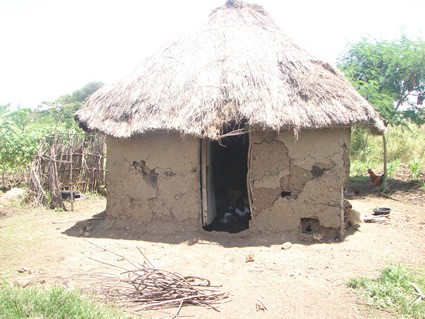
Nelson approached the professor and formed a rapport with him. He is now mentored by Mr. Kimando, and also participates in a Unfortunately, their strength waning with age, the grandparents weren’t prepared to handle five grandchildren on their own. Nelson and his siblings were now virtual or social orphans. Although they had caregivers, those caregivers were frail and unable to support them as they needed.
No Longer Orphaned: Compassion Steps In
Regardless of the label, an orphan is simply a child deprived of parental love and care. But no orphan is outside of God’s attention. He is the ultimate caretaker of orphans. Throughout Scripture, we see his promises to orphans.
A father to the fatherless, a defender of widows, is God in his holy dwelling. God sets the lonely in families, he leads out the prisoners with singing; but the rebellious live in a sun-scorched land. — Psalm 68:5-6, NIV
At Compassion, we follow in Jesus’ footsteps to care for those in need, including orphaned children. And that’s exactly what happened for Nelson.
The situation at Nelson’s grandparents’ home was dire. But being sponsored through the local church was an answer to prayer for Nelson. He received the financial support needed to attend school and the encouragement and love he desired after losing his parents.
“I joined the Mahaya Child Development Center, and the social worker there became very close to me. I developed a connection with him. I would meet him every Saturday and, after the program, we would talk about life.”
Nelson drew strength from a loving God, his courageous but aging grandparents, and a generous worker at his child development center who invested in him. Inspired to keep moving forward, Nelson went on to university after receiving financial support from Compassion to continue his education.
“When I joined university, I met Mr. Kimando, one of my lecturers at the university. He openly professed his faith in Jesus. I admired him.”
Nelson approached the professor, who soon became his mentor and taught him how to live following godly principles.
“My perspective about growing up into a man has reformed, especially since I did not grow up with my father. I now have a better understanding of my role as a man and a future father.”
God did not abandon Nelson. Through the care of ministry and university mentors like Mr. Kimando, Nelson is poised to become a world changer.
How to Help Orphaned Children Like Nelson
Nelson’s story is a heartbreaking reminder of the struggles orphans face around the globe. His journey from a loving family to facing the harsh reality of orphanhood is a call to action. It’s up to us to stand in the gap for children like Nelson, providing the love and care they need to thrive.
Compassion is doing just that in partnership with the local church. With churches in impoverished communities, we’re providing children with the physical, mental, emotional and spiritual care they need to break the chains of poverty.
But we need your help. Through your support, a child in need will not only receive right-now necessities like medical care and nutrition, but they’ll also have access to long-term support, such as education and mentorship.
Above all else, they’ll hear the good news of the gospel, giving them eternal hope.
Nelson’s story and photos compiled by Silas Irungu, Field Communications Specialist. This article was updated on November 7, 2024.
Stand in the Gap for an Orphan
You can help an orphan receive the life-giving care they need to thrive. Become a sponsor.
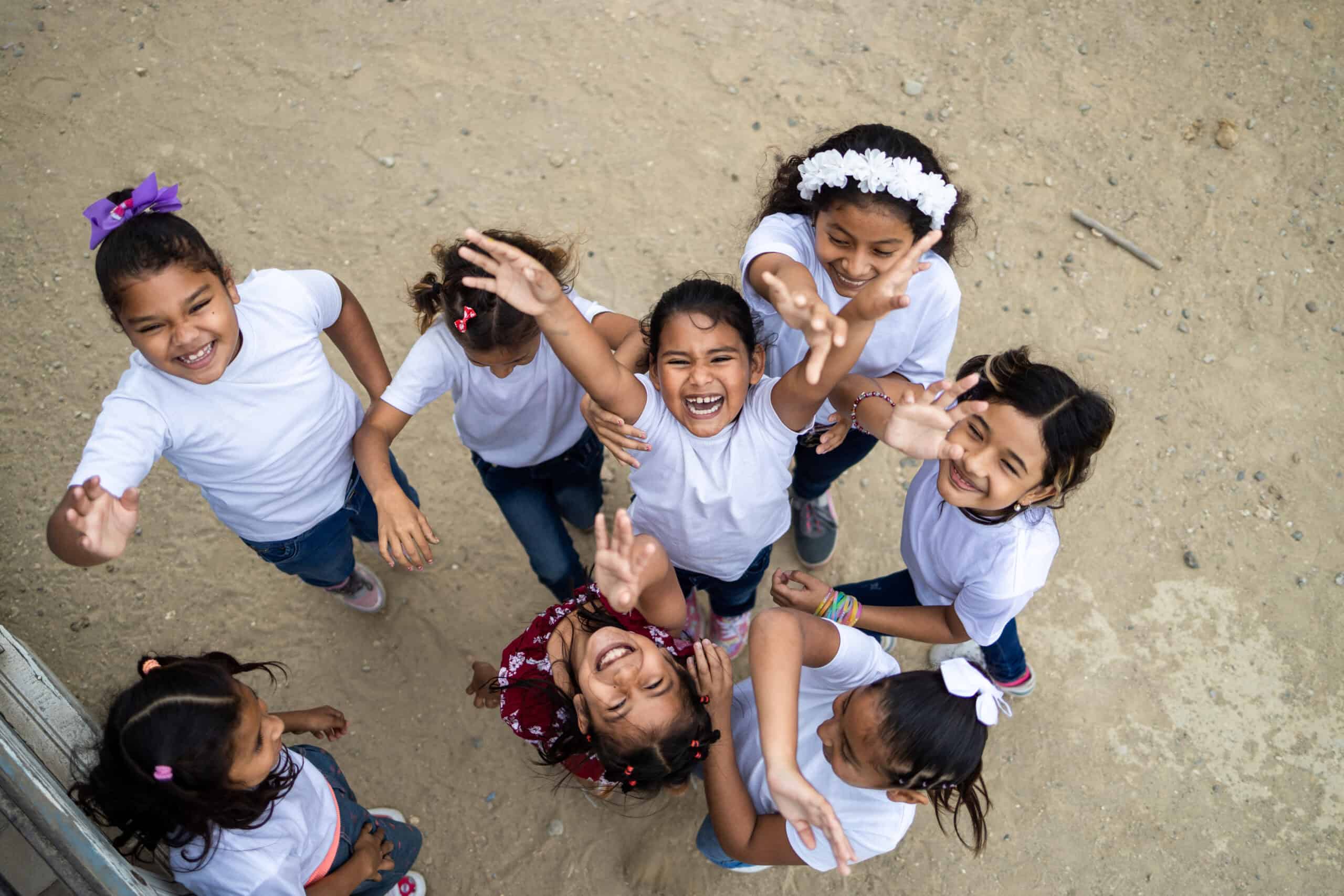


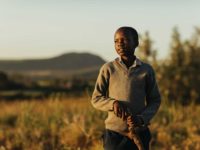

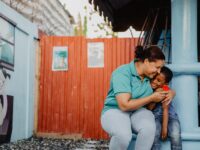


6 Comments |Add a comment
Thank you for posting this. It clarifies some questions I had (and had forgotten having, so thank you again!) about which children are considered orphans and which ones aren’t.
I’m so grateful that Compassion could help Nelson, and that they help so many other children as well! It makes the world brighter to know that, even with all the dark things that come up in life, I can remember that organizations like Compassion are out there, helping kids, changing the world, and making a positive difference in so many lives. Thank you!
This posting caused me to think more deeply, into the mind of an orphan. I read it following an article about self esteem.
If children with two parents have self esteem issues, what do orphans deal with? After all, one parent died. The other abandoned them. I currently sponsor one boy just like that, only the story goes on to the uncle who also tried to poison him. How is this orphan’s self esteem working out?
We, in Compassion, are investing in the lives of these who need help, love, acceptance and encouragement. We, in many cases, take on the role of parent.
These kids are not just projects. They are our children.
I agree that these kids are never “projects”. They’re not “broken”. They’re not a “thing”. They’re people who need support, same as anyone else. They’re beautiful people who have so much potential in the world, and Compassion gives them the chance to explore that in ways that might not have been otherwise possible. For our part, my husband and I view ourselves as more like an aunt and uncle (though I can see your point of parents too). We’re not there every day, and maybe sometimes our only connection is through a letter or a small gift. But we have an impact on their lives. We can be there to say ‘you can do this’, ‘you are a gift in this world’, ‘you are a blessing’ when maybe some others aren’t saying that. It’s a gift just to be a sponsor, and such a blessing. I’m so grateful we have the opportunity to have these wonderful children in our lives.
Thank God for Christian Missionaries
Here’s some orphans from Sudan, man can they sing! 😉 http://www.youtube.com/watch?v=ypZE6skmu_Q
LOVE Make Way Partners Mike. Thanks for sharing!